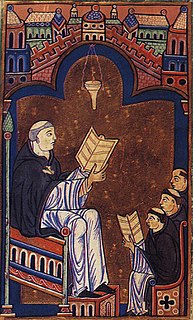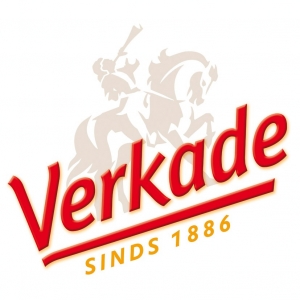
Antwerp Province is the northernmost province both of the Flemish Region, also called Flanders, and of Belgium. It borders on the North Brabant province of the Netherlands to the north and the Belgian provinces of Limburg, Flemish Brabant and East Flanders. Its capital is Antwerp, which includes the Port of Antwerp, the second-largest seaport in Europe. It has an area of 2,876 km2 (1,110 sq mi), and with over 1.85 million inhabitants as of January 2019, is the country's most populous province. The province consists of three arrondissements: Antwerp, Mechelen and Turnhout. The eastern part of the province comprises the main part of the Campine region.

Turnhout is a Belgian municipality and city located in the Flemish province of Antwerp. The municipality comprises only the city of Turnhout proper. In 2021, Turnhout had a total population of 45,874. The total area is 56.06 km2 (21.64 sq mi). The agglomeration, however, is much larger, accounting up to 81,473 inhabitants. Turnhout is known for its playing card industry, as it houses the head office of the world's largest manufacturer of playing cards, Cartamundi. Turnhout is also the capital of the administrative district with the same name. The Turnhout city council often promotes the city as "the capital of the Kempen area". This designation is entirely unofficial, since the Kempen area is far larger than the Turnhout district and does not form an administrative unit.
Articles related to Belgium include:

Hugh of Saint Victor, was a Saxon canon regular and a leading theologian and writer on mystical theology.

Baarle is a village whose territory is divided into a patchwork of Belgian and Dutch territories. The Belgian parts of the village are called Baarle-Hertog and the Dutch elements are called Baarle-Nassau. The Belgian part includes 16 exclaves within Dutch territory. The exclaves, in turn, surround seven Dutch areas. Belgian territory also surrounds an eighth Dutch area near Ginhoven. In 1995, the border was finalized to include a formerly neutral grassland. Baarle also includes a quadripoint shared by two of the exclaves.

The Campine or De Kempen is a natural region situated chiefly in north-eastern Belgium and parts of the south-eastern Netherlands which once consisted mainly of extensive moors, tracts of sandy heath, and wetlands. It encompasses a large northern and eastern portion of Antwerp Province and adjacent parts of Limburg in Belgium, as well as portions of the Dutch province of North Brabant and Dutch Limburg around Weert.

Janssen Pharmaceuticals is a pharmaceutical company headquartered in Beerse, Belgium, and wholly-owned by Johnson & Johnson. It was founded in 1953 by Paul Janssen.
Cartamundi Group is a company based in Turnhout, Belgium, that manufactures, produces, and sells board games, card games, collectible card games, packages, and playing cards through its manufacturing and sales subsidiaries. The name of the company in Latin means cards for the world. It is one of the world's largest playing card manufacturers.
Huhtamäki Oyj is a Finnish consumer packaging company whose production includes food packaging, disposable containers, as well as egg cartons and fruit packaging for quick service restaurants, coffee shops, retail stores, caterers and vending operators. It operates globally and is headquartered in Espoo, Finland.
Pieter Corbeels was a Belgian book printer and resistance leader. He was a founder of the Belgian-based publishing company Brepols. He commanded part of the Brabantine forces during a revolt against the French Revolutionary regime known as the Boerenkrijg. He was executed for his role in the war.
Brepols is a Belgian publishing house. Once, it was one of the largest printing companies in the world and one of the main employers in Turnhout (Belgium). Besides its printing business, Brepols is also active as a publisher. Formerly well known for its missals, the company is now better known for its specialization in historical studies and editions of classical authors, including the Corpus Christianorum.
Baron François du Four was a Belgian industrialist. He married Germaine Herry in 1902, and together they had seven daughters and a son.
Baron Louis de Cartier de Marchienne was a Belgian businessman. He was managing director of the company Eternit in the 1960s, and in 1971 he became Chairman of the Board of the printing company Brepols and led the company through a period of change. His son Jean-Louis de Cartier de Marchienne is a member of the board of Carta Mundi.

Philippus Jacobus Brepols was a Belgian publisher and founder of the Brepols printing family-business in Turnhout, Belgium.
Proost International Book Production was a Belgian manufacturer and supplier for the book publishing industry. It was one of the companies of the printing valley around Turnhout, Belgium. The company operated from two manufacturing sites in Belgium, one in Turnhout (Flanders) and one in Fleurus (Wallonia).
Biermans was a Belgian printing company, located in Turnhout, Belgium. It was one of several companies located in the printing valley of Turnhout.
Dr. Jan Constant Janssen was a Belgian physician and businessman. He was the third child of Adriaan Victor Janssen (1854–1942) and Anna Catharina Eelen (1855–1929). He went to high school in Hoogstraten and studied medicine at the Catholic University of Leuven and the University of Ghent. On 16 April 1925, he married Margriet Fleerackers, together they had four children. Their oldest son, Paul Janssen, would become one of the most successful scientists in pharmaceutics.

Royal Verkade is a Dutch manufacturing company, owned by a Turkish conglomerate. The company is headquartered in Zaandam and was one of the oldest existing family companies in the Netherlands. In November 2014 the company was acquired by Pladis, a global biscuit, chocolate and confectionery company owned by Yıldız Holding. It was founded in 1886 by Ericus Verkade to make mostly bread and rusk, and expanded to produce cookies, sweets, and, especially, chocolates.
Exact is a Dutch software company that offers accounting, ERP, and other software for small and medium enterprises. Exact develops cloud-based and on-premises software for industries such as accountancy, wholesale distribution, professional services and manufacturing, serving more than 500,000 companies.

Agneta Wilhelmina Johanna van Marken-Matthes was a Dutch entrepreneur. She and her husband Jacques van Marken were involved in the manufacture of yeast throughout their lives, and were engaged in the co-operative movement, taking care of their workers. Matthes and Van Marken created living quarters for workers in her hometown, Delft in South Holland, named Agnetapark after her. These are considered a model for the co-operative development and construction of garden cities for workers. Matthes founded and ran a Delft perfume factory, Maison Neuve, to take advantage of a by-product from the yeast factory.